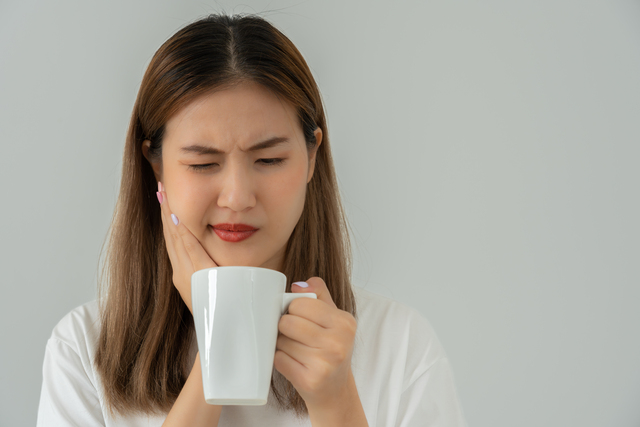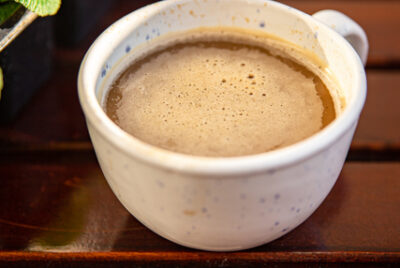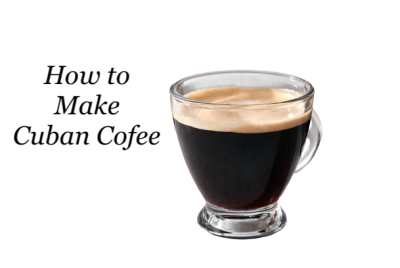Can I Drink Coffee After A Tooth Extraction? Exploring the Aftercare
As a coffee lover, the thought of giving up your daily cup of joe after a tooth extraction can be disheartening. As I have had people asking “Can I drink coffee after a tooth extraction?”, you might wonder if you can indulge in your favorite brew without jeopardizing the healing process.
In this article, we’ll delve into the topic of drinking coffee after tooth extraction and provide helpful suggestions and reasons for your post-extraction coffee consumption.
*Remember, the information provided in this article serves as a general guide. It’s crucial to consult with your dentist or oral surgeon for personalized advice based on your specific situation. They will provide the most accurate and relevant recommendations for your post-extraction care.*
Understanding Tooth Extraction
Before we dive into the effects of coffee on tooth extraction, it’s important to have a basic understanding of the tooth extraction process itself. Tooth extraction is a common dental procedure that involves the removal of a damaged or decayed tooth. It is typically performed under local anesthesia to ensure a pain-free experience.
Effects of Coffee on Tooth Extraction
Coffee is a beloved beverage enjoyed by millions around the world. However, when it comes to consuming coffee after a tooth extraction, there are certain factors to consider. The effects of coffee on tooth extraction can influence the healing process and overall oral health.
Let’s explore these effects in more detail to help you make informed decisions during your recovery period.
1. Caffeine and Vasoconstriction:
One of the main components of coffee is caffeine, a natural stimulant that can affect the body in various ways. Caffeine has vasoconstrictive properties, meaning it narrows blood vessels. This vasoconstriction can potentially impact the healing process after tooth extraction.
When blood vessels constrict, it reduces blood flow to the extraction site. Adequate blood flow is crucial for delivering oxygen, nutrients, and immune cells that aid in the healing process. If the blood flow is compromised, it may delay the formation of blood clots and impede the body’s natural healing mechanisms.
2. Temperature Sensitivity:
Another aspect to consider is the temperature of coffee. Hot beverages, including coffee, can cause discomfort and sensitivity after tooth extraction. The extraction site is still healing, and the heat from the coffee can irritate the area and potentially disrupt the blood clot formation.
The heat from hot coffee can also cause blood vessels in the surrounding tissues to constrict. This constriction can result in discomfort or delayed healing. It’s essential to allow the extraction site to heal properly before exposing it to hot temperatures.
3. Acidic Nature of Coffee:
Coffee is naturally acidic, which can have implications for oral health. Acidic beverages can erode tooth enamel over time, leading to tooth sensitivity and an increased risk of cavities. Tooth extraction sites are vulnerable, and exposure to acidic substances may further irritate the area and delay healing.
Additionally, acidic drinks can contribute to dry mouth, as they can decrease saliva production. Saliva plays a crucial role in maintaining oral health by neutralizing acids and helping to remineralize teeth. A dry mouth can hinder the healing process and create an environment conducive to bacterial growth.
4. Staining Potential:
Coffee is notorious for staining teeth, and this staining effect can become more noticeable after tooth extraction. The extraction site may be more susceptible to staining as it heals and undergoes changes. It’s important to be mindful of this aspect, especially if you’re concerned about the aesthetics of your smile.
5. Individual Variations:
It’s essential to recognize that individual responses to coffee may vary. Some individuals may tolerate coffee well after tooth extraction, while others may experience more discomfort or complications. Factors such as the extent of the extraction, overall oral health, and individual healing abilities can influence how coffee affects the recovery process.
When reintroducing coffee, it’s best to start with small sips of lukewarm or cooled-down coffee to minimize discomfort. It’s important to listen to your body and be mindful of any adverse reactions or increased sensitivity. If you experience any discomfort, it may be best to wait a bit longer before resuming regular coffee consumption.
Drinking Coffee after Tooth Extraction
While it’s best to avoid drinking coffee immediately after tooth extraction, you can gradually reintroduce it into your routine as the healing progresses. Here are some helpful guidelines to follow:
1) Wait for the Initial Healing:
In the first 24 to 48 hours after tooth extraction, it’s important to focus on rest and recovery. This initial period allows the blood clot to form and the healing process to commence. During this time, it’s best to avoid drinking coffee or any other hot beverages that may disrupt the healing process.
2) Consult Your Dentist:
Every individual and extraction case is unique. It’s important to consult with your dentist or oral surgeon to get personalized advice based on your specific situation. They can provide insights into your healing progress and give recommendations on when it is safe to resume coffee consumption.
3) Gradual Reintroduction:
Once your dentist gives the green light, you can gradually reintroduce coffee into your routine. Start with small sips of lukewarm or cooled-down coffee. Avoid hot temperatures that may cause discomfort or compromise healing.
4) Consider Creamy or Cold Coffee Options:
To minimize potential discomfort, you can opt for coffee with milk or cream. The added dairy can help lower the temperature and reduce sensitivity. Alternatively, you can explore cold brew or iced coffee options that provide a refreshing twist.
Considerations and Precautions
While you may be eager to enjoy your coffee, it’s important to keep a few considerations and precautions in mind:
-Avoid Straws:
Using a straw can create suction in the mouth, which may dislodge the blood clot forming in the extraction site. This can lead to a painful condition known as dry socket. So, it’s best to avoid using straws until your dentist gives you the go-ahead.
-Maintain Good Oral Hygiene:
Proper oral hygiene is crucial for a smooth recovery. Brush your teeth gently and avoid the extraction area while it heals. Be mindful of any discomfort or bleeding, and reach out to your dentist if you notice any concerning symptoms.
-Listen to Your Body:
Pay attention to how your body responds to coffee consumption after tooth extraction. If you experience any increased discomfort, sensitivity, or other adverse effects, it may be a sign to reduce or temporarily abstain from coffee until you’re fully healed.
Alternatives to Coffee
If you’re concerned about the potential effects of coffee on your healing process or if your dentist advises against it, there are several alternatives you can explore during the recovery period:
Herbal Teas: Sip on soothing herbal teas like chamomile, peppermint, or ginger tea. These options provide warmth and flavor without the caffeine content of coffee.
Decaffeinated Coffee: Decaffeinated coffee offers a way to enjoy the taste and aroma of coffee without the stimulating effects of caffeine. As covered in this article, decaf coffee does usually contain small amounts of caffeine. Look for high-quality decaf options to ensure a satisfying experience.
Flavored Water: Infuse your water with fruits, herbs, or cucumbers to add a refreshing twist. This can help satisfy your craving for a flavorful beverage while staying hydrated.
Click here to learn about alternatives to coffee when dealing with a sore throat
Tips for a Smooth Recovery
To ensure a smooth recovery and minimize any potential complications, follow these additional tips:
1) Follow Post-Extraction Instructions:
Adhere to the post-extraction care instructions provided by your dentist or oral surgeon. These guidelines include proper oral hygiene, avoiding strenuous activities, and eating a soft diet.
2) Manage Discomfort:
If you experience any discomfort or pain during the recovery period, follow the pain management strategies recommended by your dentist. This may include over-the-counter pain relievers or prescribed medications.
3) Stay Hydrated:
Drink plenty of water to stay hydrated and promote overall healing. Adequate hydration is essential for a healthy recovery process.
4) Eat Nutritious Foods:
Focus on consuming soft and nutritious foods that are easy to chew and won’t irritate the extraction site. Opt for options like yogurt, mashed potatoes, smoothies, and soups.
5) Attend Follow-Up Appointments:
Regularly attend follow-up appointments with your dentist to monitor your healing progress and address any concerns or complications promptly.
Conclusion
In conclusion, while it’s best to avoid drinking coffee immediately after tooth extraction, you can gradually reintroduce it into your routine as your healing progresses. Consult with your dentist for personalized advice and follow the recommended guidelines for a safe and comfortable coffee experience. Remember to listen to your body, maintain good oral hygiene, and consider alternatives if needed. With proper care and patience, you’ll soon be back to enjoying your favorite cup of coffee.
FAQs
1. When can I start drinking coffee after tooth extraction? The timing varies depending on your healing progress. It’s best to consult with your dentist, but generally, you can consider reintroducing coffee once the initial healing phase of the first 24 to 48 hours has passed. Your dentist will provide personalized advice based on your specific situation.
2. Can I add milk or cream to my coffee after tooth extraction? Yes, adding milk or cream to your coffee can help lower the temperature and reduce sensitivity. It can provide a more comfortable coffee experience after tooth extraction.
3. Are there any coffee substitutes I can try during the recovery period? Absolutely! If you’re advised to avoid coffee during the recovery period, there are several alternatives you can explore. Herbal teas, decaffeinated coffee, and flavored water are great options to satisfy your beverage cravings without compromising your healing process.
4. How long should I wait before using a straw for my coffee after tooth extraction? Using a straw creates suction, which can dislodge the blood clot forming in the extraction site and lead to a painful condition called dry socket. It’s best to avoid using straws until your dentist gives you the go-ahead, typically after a few days or when you’re fully healed.
5. What are some signs of complications after tooth extraction? While complications after tooth extraction are rare, it’s essential to be aware of any potential issues. Signs of complications may include excessive bleeding, severe pain, persistent swelling, a foul taste or odor, or difficulty opening your mouth. If you experience any of these symptoms, contact your dentist immediately for further evaluation.
With patience, proper care, and guidance from your dental professional, you can enjoy your favorite cup of coffee once again while ensuring a smooth and successful recovery after tooth extraction. Cheers to both your dental health and your love for coffee!




